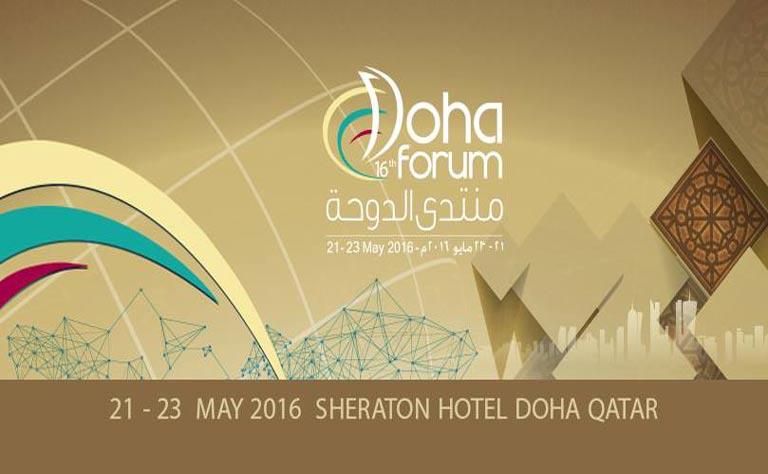
Doha Forum Stresses Need to Develop the UN to Address Global Challenges
Participants stressed the importance of regional and international cooperation to combat extremism and violence, in addition to the need for the United Nations to play its role without any discrimination, especially with regard to the UN Security Council's resolutions, the role of women, the fair distribution of wealth and the launch of new initiatives aimed at protecting human rights, eliminating violence and trapping terrorism.
In this context, HE Nasser bin Abdulaziz Al Nasr, High Representative for the United Nations Alliance of Civilizations stressed that violent extremism and terrorist operations the world is witnessing represent a threat to international peace and security and widen the gap between the communities and states, pointing out that extremists and terrorist groups seek to spread hatred and violence among the communities against the Charter of the United Nations and the UN Universal Declaration of Human Rights (UDHR).
The Alliance of Civilizations is one of the soft means created in order to contribute to a more secure and peaceful world through tackling extremism and radicalism, promoting cultural exchange and addressing the problems and challenges facing the contemporary world, HE Al Nasr added, referring to the Baku Declaration achieved at the conclusion of the 7th Global Forum of the United Nations Alliance of Civilizations in Baku, Azerbaijan last month.
The role of communities is to provide channels and means of social, economic and political integration to ensure the right to work, he said, stressing that the fulfillment of these elements would limit the risks posed by violent extremism and terrorism especially .
The luck of prosperity in communities leads to marginalization, exclusion and unemployment among youth which prompte extremism, he went on saying.
Focusing on security solutions and measures has proven its failure, HE Al Nasr said, stressing that extremism and terrorism grow when human rights are violated and the aspirations of the people are ignored.
He urged participants to strengthen cooperation among international communities, non-governmental organizations and civil society institutions to address the roots of terrorism and extremism.
For his part, the President of the 70th session Mogens Lykketoft said the challenges faced by the Middle East are various, referring to Syria and Yemen conflicts, the Israeli-Palestinian issue, the flow of refugees to Jordan, Lebanon and Turkey, the escalation of tension between the regional powers and sectarian divisions that promote violent extremism along with climate change and land degradation in areas where there is no sharing of wealth .
He urged governments to take more initiatives aimed at ending divisions and tensions that deprive millions of people of hope for a better future, stressing the United Nations' role in implementing further initiatives in this regard.
The existing infrastructure is unable to promote and protect peace and security due to security tensions and the absence of necessary tools and capacities to protect civilians, the UN official said, stressing the need to respond the new types of security and stability challenges, epidemics and displacement in a responsible way.
He urged the States to refrain from the use of violence and assume their responsibilities under international law and the United Nations' umbrella to put an end to extremism, fight terrorism and be more credible which require institutional and structural reforms aimed at enhancing collective action on security, human rights and the level of cooperation between regional organizations.
For her part, Argentinian Foreign Minister Susana Malcorra said peace, security and stability play a pivotal and significant role in achieving international and regional balance, asserting that building confidence, promoting transparency, participation and political consensus are basic pillars for enhancing global security as one of the main universal values.
Addressing the current challenges require enhancing dialogue between all parties, implementing international law and bringing together international efforts to tackle the issues facing the world, she went on saying.
She stressed the importance of meeting peoples' need, the empowerment of women, unconventional solutions and promoting regional and international integration, noting that there is a need for the integration of regional and international efforts to achieve such a target.

Legal Disclaimer:
MENAFN provides the
information “as is” without warranty of any kind. We do not accept
any responsibility or liability for the accuracy, content, images,
videos, licenses, completeness, legality, or reliability of the information
contained in this article. If you have any complaints or copyright
issues related to this article, kindly contact the provider above.


















Comments
No comment